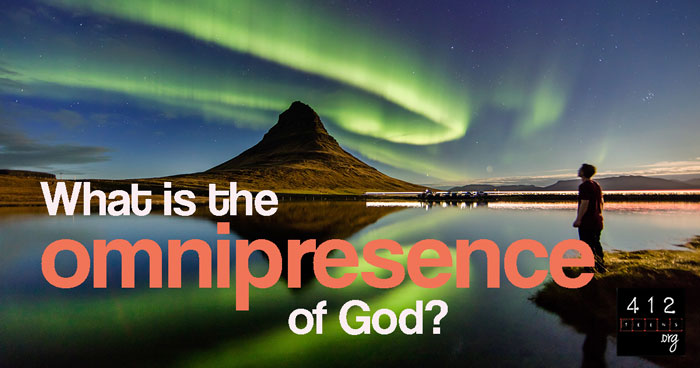

In other words, omnipresence (being positive in thrust) means that God is everywhere present in the world immensity (being negative in thrust) means that He is by no means limited to or confined by it. Whereas immensity affirms that God transcends all spatial limitations, that His being cannot be contained or localized, omnipresence signifies more specifically the relationship which God in His whole being sustains to the creation itself. But here we shall speak of God as infinite with respect to space and thus predicate of Him "omnipresence" and "immensity."Ī slight distinction between immensity and omnipresence ought to be noted. To say that God is infinite with respect to power is to predicate "omnipotence" of the Divine Being. To say that God is infinite with respect to knowledge is to predicate "omniscience" of the Divine Being (He knows all things, and that infallibly). To say that God is infinite with respect to time is to predicate "eternity" of the Divine Being (He is everlasting, without beginning or end). God is infinite, for example, in relation to time, knowledge, power and space.

Infinity may thus be predicated of God in several ways. 5) defines an infinite being as “(1) a being who possesses all the G-properties that it is possible for a being to possess (2) a being all of whose G-properties that admit of an intrinsic maximum are possessed to the maximal degree (for example, being omnipotent) and (3) a being all of whose G-properties that admit of no intrinsic maximum are possessed to a degree unsurpassed by any other being that has ever existed or ever will exist (for instance, being more loving than any other actual being).” Stephen Davis (“Why God Must Be Unlimited,” in Linda Tessier, ed., Concepts of the Ultimate, p. Infinity, in sum, is that in virtue of which the Deity embraces all His perfections in the highest degree. When we speak of God as infinite, we mean that He is without limit, that He is in all relevant respects inexhaustible, subject to no conceivable calculations, in no way saddled by the imperfections of the creature. His spirit is over our spirit our presence is ever in his presence" (III,b:260). His mind is in our mind himself within ourselves. Go from him, or flee from him we cannot: neither by patient travel nor by hasty flight can we withdraw from the all-surrounding Deity. "for we offend the Almighty to his face, and commit acts of treason at the very foot of his throne. It is not merely the omniscience of God but His omnipresence as well, noted Charles Spurgeon, that makes it dreadful work to sin, If I say, 'Surely the darkness will hide me and the light become night around me,' even the darkness will not be dark to you the night will shine like the day, for darkness is as light to you" (Ps. If I rise on the wings of the dawn, if I settle on the far side of the sea, even there your hand will guide me, your right hand will hold me fast. "Where can I go from your Spirit? Where can I flee from your presence? If I go up to the heavens, you are there if I make my bed in the depths, you are there.

139:1-4).īut might there not be some secluded hideaway, some remote corner of the universe to which even the Deity has no access? Might we not there sin freely? Might we not there sin secretly? But where is "there"? Before a word is on my tongue you know it completely, O LORD" (Ps. You discern my going out and my lying down you are familiar with all my ways.

You know when I sit and when I rise you perceive my thoughts from afar. "O LORD, you have searched me and you know me. But what we naively think to have concealed successfully behind the veil of the soul is but an open book before Him with whom we have to do: Thinking that none has access to the secrets of our hearts, we lust, envy, hate, and covet. The "omni's" of God, if I may refer to them in this way, are of little comfort to the rebellious heart, for they shatter those illusions on the strength of which we so often justify our sin.


 0 kommentar(er)
0 kommentar(er)
